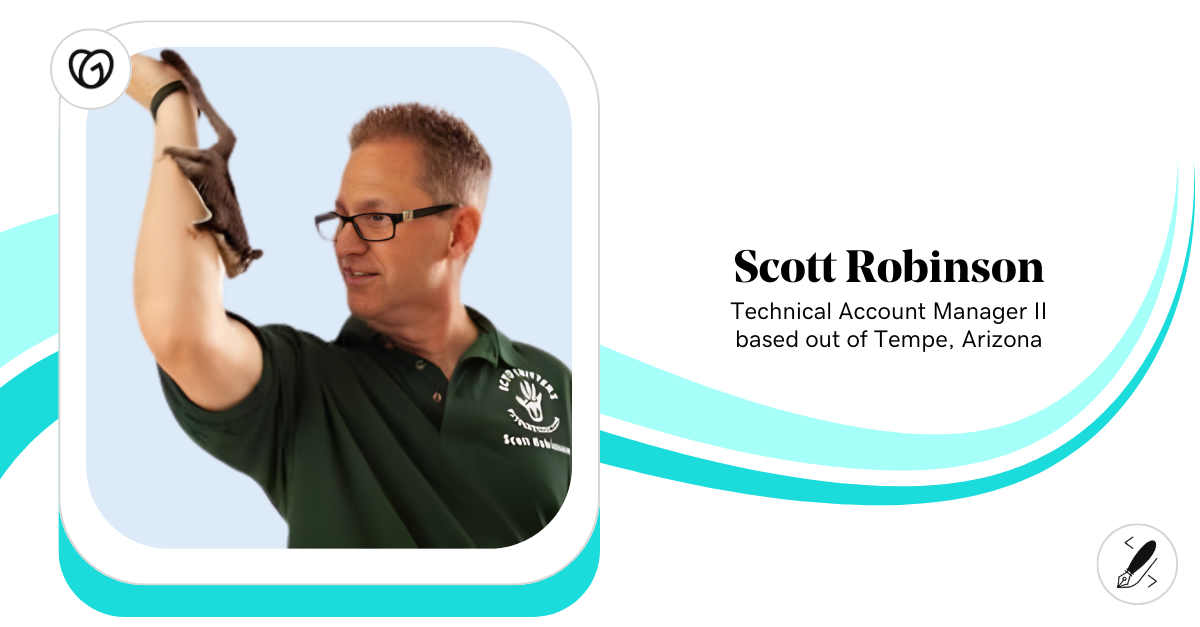As you think about ways to protect your mental health, consider that one in five adults in the United States have reported a mental illness? For entrepreneurs, that number skyrockets. Forbes reported, “72% of entrepreneurs are affected by mental health issues (*compared to 48% of non-entrepreneurs).
There could be several reasons why this is the case. The stress and anxiety induced from being responsible for wearing many hats, for starters. Not to mention the fact that when you’re the boss, everything weighs on your shoulders.
As entrepreneurs, we ask ourselves so many questions like:
- Will the company be successful?
- Can I pay my bills? What about the people working for me?
- What if that client doesn’t pay on time? Then, what?
- The order got lost and my products are delayed - what do I tell my customers?
You get the idea.
The point is, being an entrepreneur is stressful. So how do you keep it in check? How can you protect your mental health as an entrepreneur? In this post, I hope to give you some helpful tips and advice for doing just that. Come with me on a journey of mental wellbeing won’t you?
How does being an entrepreneur affect your mental health?
There are several ways that being an entrepreneur can affect your mental health.
- We spend a lot of time alone. This can lead to feelings of depression from loneliness, and social anxiety when we are around others.
- We have a lot of pressure on us which can lead to burnout, anxiety, extreme stress, etc…
- We are often the face of our companies, which can result in impostor syndrome, fears of being visible, paranoia, and more. It also doesn’t help that in the age of social media, we can get picked apart online from trolls and haters. Cyber bullying anyone?
Stress & physical health issues
Let’s talk about stress for just a moment. Have you ever been to a local bakery around the times of Valentine’s Day, Easter, Thanksgiving or Christmas? If so, have you ever watched how hectic it gets during those busy times? All that extra foot traffic, phones ringing off the hook, people wanting to place orders online, on the phone, and in person. Everyone needs their baked goods for the big day.
Or what about a florist during the week of Mother’s Day? That’s the busiest time of the year for them and the stress of everyone wanting to make sure mom gets their flowers is enough to set get anyone thinking of ways to protect their mental health.
And physically? All that time on your feet working the registers, manning the phones, putting together the orders. Sounds pretty labor intensive doesn’t it?
That’s just during the busy seasons. I’ve seen many of my entrepreneur friends buckle under the pressure when a customer leaves a bad review, when they get a string of refund requests, and when they look at the clock only to realize they haven’t even taken a bathroom break in 12 hours.
We are tethered to our desks and workspaces barely getting enough time to get in a workout let alone eat a healthy meal.
The isolation of entrepreneurship
I’ve said it many times, but being an entrepreneur can be one of the loneliest careers. Especially when you are a one-man band like I am. Sure, I’ve hired help occasionally, but sitting alone at my desk all day, everyday, sometimes makes me miss the days of company potlucks and picnics from my corporate days.
We often feel as though no one around us can possibly understand everything we’re going through.
The worst part is, when our friends and family members “clock out” for the day, we’re still at home or in our offices trying to get our next client presentation just right, or finishing up the orders that came in. While the world around us keeps on moving, we are alone trying to get ready for the next day, keeping our clients happy, finishing tasks, adding to our never ending to do lists. You get the idea…
Anxiety is part of hustle culture
If I see one more hustle culture post on Instagram encouraging me to get up earlier to “crush” my goals, or “destroy” the competition I might just blow a gasket. Everyone is demanding things NOW. Everyone wants their needs met YESTERDAY!
And it feels like no matter how much you do, you can’t seem to get ahead because there’s always another task that needs to be completed.
We see things on social like:
- “Adapt or Die”
- “Good things happen to those who hustle”
- “The hustle brings the dollar”
- Hustlers don’t sleep”
- Or my personal favorite “Wake up, hustle, sleep, repeat”
No wonder 59% of entrepreneurs have reported they have anxiety, and 63% have reported they have felt burnt out. Speaking of burnout…
Burnout from no down time
While a corporate job offers sick days, vacation days, and in the best cases maternity leave, entrepreneurs don’t get any of that. We don’t have unions, designated breaks, required clock-out times, and we can literally work ourselves into the ground if we choose not to protect our mental health.
I’ve known entrepreneurs who work seven days a week, 52 weeks a year, and can’t recall the last time they turned off their phone, let alone taken a week away from work.
I once knew an entrepreneur who truly believed if you weren’t on call 24/7/365, you were a failure as a business owner. I often heard her coach people on the art of the hustle and how important it was to constantly be available to your clients. Most of her coaching clients gave up and went back to day jobs within less than six months.
And can you blame them? Constantly working is begging to burnout.
I’ve done this myself — burned the candle at both ends. Kept going until my body forced me to stop because I got sick.
If you’re snapping at clients, resenting your work, driving yourself to the point of exhaustion, and sometimes feel like you’re surviving on coffee and grit alone — you too may be suffering from burnout.
This barely scratches the surface of what an entrepreneur can face on a daily basis. While there are so many amazing perks to being the one in charge, there’s also a lot of disadvantages that must be addressed and managed.
Failing to protect your mental health as an entrepreneur can derail your business fast!
How business owners can protect their mental well-being
Alright, I admit it. I’ve shared a lot of awful things about how being an entrepreneur can just destroy your mental health. Now for the good news. As an entrepreneur, you’re in charge. That means you can take the reins and steer your mental health in the right direction. Let’s explore how to protect your mental well-being!
Know the signs of mental health issues
As our good buddy of yesteryear G.I. Joe always said, “Knowing is half the battle.”
When we recognize the signs that we’re suffering from mental health issues, then we can do something about it! That said, here are the most common signs of mental health issues from the U.S. Department of Health & Human Services:
- Eating or sleeping too much or too little
- Pulling away from people and usual activities
- Having low or no energy
- Feeling numb or like nothing matters
- Having unexplained aches and pains
- Feeling helpless or hopeless
- Smoking, drinking, or using drugs more than usual
- Feeling unusually confused, forgetful, on edge, angry, upset, worried, or scared
- Yelling or fighting with family and friends
- Experiencing severe mood swings that cause problems in relationships
- Having persistent thoughts and memories you can't get out of your head
- Hearing voices or believing things that are not true
- Thinking of harming yourself or others
- Inability to perform daily tasks like taking care of your kids or getting to work or school
Note: These signs can be related to a variety of mental health issues including, but not limited to:
- Anxiety
- Depression
- Stress
- Burnout
- Behavior and Emotional Disorders
- ADHD
- Bipolar Disorder
- Substance Abuse, and many others
The point of sharing these signs is simply to give you a baseline of what to look out for.
Develop a routine for self care
No one can take care of you if you don’t take care of yourself. Here’s the harsh reality you might need to hear: there’s no white knight coming to save the day. It’s unlikely that anyone will come into your shop or office and offer you a paid day off. You have to create your own plan to protect your mental health.
With that in mind, what should your self care routine look like?
Unfortunately, I can’t answer this for you because some people need more than others. Still, here’s what I can recommend based on things my therapist has told me along with the eleventy billion articles, blogs, books, YouTube videos and more I’ve perused on the subject. Your self-care routine should include:
A healthy regular amount of sleep each night:
Some people need just six hours and others need nine hours. The Office of Disease Prevention and Health Promotion recommends “7 or more hours of good-quality sleep on a regular schedule each night”
150 minutes of physical activity weekly:
The CDC recommends this amount at a minimum. This doesn’t have to be a grueling task that adds hours to your day.
One of my blogger friends built a walking desk to increase her “active” time. Another walks around the block everyday after lunch. I personally will walk my dogs or do a dance party for about 30-45 minutes a day.
A well balanced diet:
MyPlate.gov is a great place to start if you’re not sure what should be in your diet. They recommend making half your plate fruits and vegetables. The other half should feature grains and protein. “A healthy eating routine is important at every stage of life. It can have positive effects that add up over time. It’s important to eat a variety of fruits, vegetables, grains, protein foods, and dairy or fortified soy alternatives.”
Make time for down time:
According to NBC News, “the sweet spot for extra free time is about three and a half hours per day.” You can fill this time with visiting friends and family, reading, meditating, taking on a hobby, anything really…
The big thing is to spend at least some time every day NOT working in or on your business. Your brain needs the break and believe it or not, downtime will help you get more done in less time.
Schedule periods of down time
How do you schedule periods of down time when you’re the one in charge? It’s all about setting and sticking to boundaries. A tech consultant friend of mine started with an autoresponder on her email that basically tells people she doesn’t respond at all hours of the day.
That simple boundary lets her clients know she does receive every email and it will be addressed, but that it might not be immediate.
Her autoresponder also includes an emergency number and she’s made it clear to her clients what is and what is not considered an emergency.
Many entrepreneurs I know have established firm office hours, and take nights and weekends off.
Personally, I’m still struggling with the whole down-time thing. And it makes sense that I’m not alone in this because we got into our businesses out of passion and love for what we do! But, even I am trying to force myself to have a firm “clock out” time at a certain point in the day and take at least two days off each week.
It’s difficult, but I do feel more productive and creative as I’m working on implementing down time.
Network & socialize with other business owners
This is so important, especially for outgoing extroverts like me. When we network with other entrepreneurs a few important things happen:
- We connect with likeminded people that are just as passionate as we are
- We get new ideas and can use each other as a sounding board
- We find clients and opportunities we might not have otherwise found
- Most importantly, we get proof we’re not alone
Know when it’s time to seek professional help
I will never be the one telling you not to see a therapist. In full disclosure, I’ve seen many therapists over the years. I am a huge believer in seeking professional mental health support because I recognize that just like going to a medical doctor, taking care of our minds is just as important as taking care of our bodies.
If your self care routines aren’t cutting it, you are struggling with mental health issues, and you can’t see a way out, please seek professional care.
Additional signs it may be time to seek professional help include, but aren’t limited to:
- You’re unable to handle the pressure/stress/anxiety
- You took a break and still can’t function at work
- Extreme weight gain or loss
- Turning to drugs and/or alcohol to cope with the pressure
- Extreme insomnia
- Restlessness
- Outbursts of anger and/or violence
- Lack of focus
- Panic attacks
- Lack of interest in the things that you once loved
- Hating your business and wanting to quit
- Suicidal or self harm ideation (If you or someone you love is experiencing thoughts of suicide, please call the Suicide and Crisis Lifeline at 988)
Closing thoughts on protecting your mental health
I know firsthand how hard it is to be a business owner. Sometimes it feels like a thankless job and like no one in the world can possibly understand what you’re going through. But, you’re not alone.
If you haven’t developed a mental health wellness plan for yourself, I sincerely hope this post inspires you to create one. Self care and mental health protection are critical to your success in both your business and your life. You are amazing, and the world needs what you have to offer, but you don’t have to harm your mental health to create your magic.
Additional Resources for Mental Health Support:
- 988 Suicide & Crisis Lifeline
- FindTreatment.gov (to find a provider treating substance use disorders, addiction, and mental illness.)
- American Psychological Association (to find a psychologist)
- American Psychiatric Association Foundation (to find a psychiatrist)
- The Trevor Project’s TrevorLifeline (for LGBTQ+ support)
- The Eldercare Locator
- U.S. Department of Veterans Affairs Mental Health Resources
- Substance Abuse and Mental Health Services Administration (SAMHSA)






